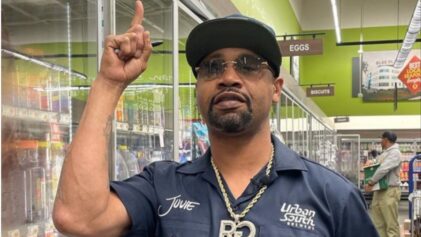
dreamstime
Louisiana’s fiscal crisis is a criminal justice nightmare, possibly signalling the end of public defense lawyers for the poor.
Bobby Jindal, the former governor of Louisiana, was once a bright Brown star in the Republican Party that quickly faded away, along with all the Bayou State’s money. Louisiana is broke, with a $1 billion surplus that Jindal turned into a nearly $1 billion deficit, thanks to corporate giveaways and the dismantling of the income tax system.
Gov. John Bel Edwards, Jindal’s newly elected Democratic successor, went on the air and broke down the hard, cold facts. Facing a $2 billion deficit for the coming fiscal year and without the necessary funds to make up the difference, basic services such as hospitals, universities and social services for child abuse victims will be cut.
Part of the sobering doomsday scenario is a 63 percent cut in funding to the state public defender system, as ThinkProgress reported. This would leave the 42 judicial districts in the state with a mere $12 million to operate, and offices throughout Louisiana have already closed down, meaning that the indigent no longer have legal representation that is constitutionally guaranteed.
This is important, particularly because of the already existing inequities that this crisis will certainly exacerbate. Louisiana already is the world leader in incarceration. According to The Guardian, the state imprisons 1,341 per 100,000 people, an unsurpassed level anywhere in the world. And sadly, that rate is twice the national average, triple the rate in Russia, nine times higher than in the UK, and even higher than North Korea.
With the financial crisis facing Louisiana, as many as 33 of the state’s 42 districts are likely to run out of money and stop representing clients by July 2017, with 11 districts possibly forced to shut down by October of this year. In other words, come this summer, the statewide network providing legal representation to the poor — a public function — will eviscerate. And in July, most public defenders will cease to handle juvenile cases such as delinquency. As a result, notes The Guardian, tens of thousands more people are likely to rot in jail for lack of legal representation. In New Orleans, where public defenders stopped taking on new cases in January, the problem is already evident.
“We will no longer be able adequately to represent the kids in this state. If a child is charged with burglary or theft, they are going to go unrepresented, and that scares me,” state public defender James Dixon told The Guardian, adding that the chances of repeat offending among juveniles will increase.
The Louisiana Center for Children’s Rights, which is the primary juvenile legal defense organization in New Orleans, handles 1,000 cases each year. Under a worst-case scenario, it will have to place 500-600 children on the wait list, causing the detention and criminalization of hundreds without representation, and increasing the likelihood they will become career criminals.
“If we suffer the full 65 percent cut that we’ve been threatened with, at least half of the children who are prosecuted in Orleans Parish will be put on a wait list and will go without timely representation by lawyers, investigators and social workers,” LCCR Executive Director Josh Perry told ThinkProgress. “That will have a deeply negative affect on the children, on the court system and on public safety.”
As it stands, 81 percent of juvenile arrests in New Orleans are for nonviolent offenses not involving firearms, as the juvenile detention facility in that city is suffering from 20 percent overcrowding.
“In Orleans, we already have dozens of people held in jail for weeks on end without conviction and with no way of getting themselves out. We are literally trapping people in jail with no way out,” said Brandon Buskey, staff attorney with the ACLU.
Advocates warn that the impending state budget meltdown is creating a dual-tier justice system, in which the wealthy hire private attorneys, and the poor are left with nothing but themselves, sitting in jail because they have no money.
The ACLU has filed a class-action suit in Orleans Parish, making the case that such a two-tiered system is unconstitutional. At some point, legal experts surmise, judges will have to release jailed defendants, because they cannot be held indefinitely without legal representation and no hope of proving their innocence.


